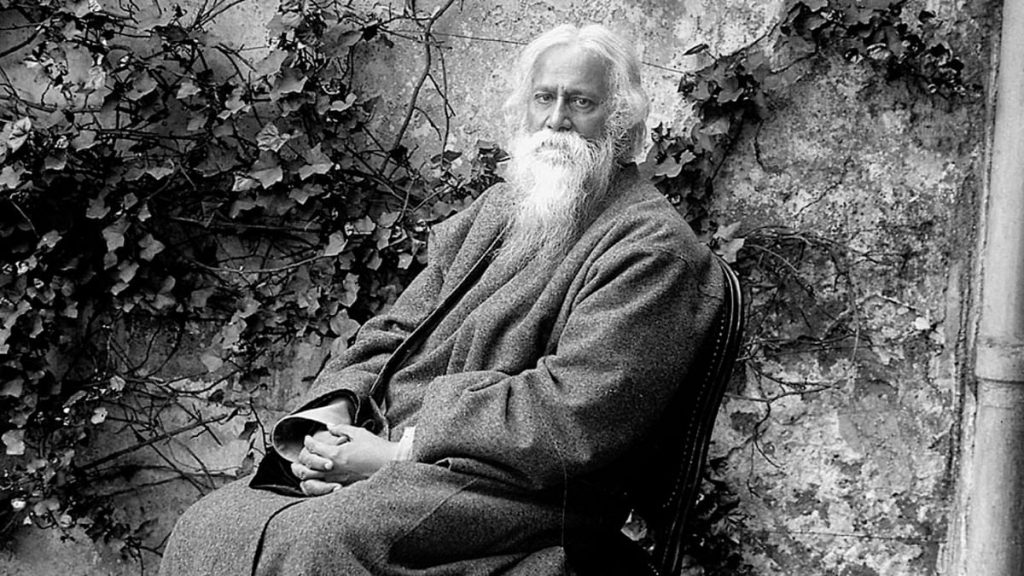“Where knowledge is free;
Where the world has not been broken up into fragments by narrow domestic walls;
Where words come out from the depth of truth
Where timeless striving stretches its arms towards perfection
Where the clear stream of reason has not lost its way into the dreary sand of dead habit
Where the wind is led forward by thee into ever widening thought and action-
Into that heaven of freedom, my Father, let my country awake”
This above verse was extracted from one of his best known works, “Gitanjali” which won him the Nobel Prize for Literature in 1912, the first non -Western person to win the Prize. “Gitanjali” is an abstract dissertation with a vast ray of Infinite meanings and interpretations.
This prize-winning publication is a manifesto for all politicians who emerge as statesmen to really read and reread it and unfold its universal message in their leadership quest to create a new world of concord, harmony, universality and understanding. As it stands, despite there are networks of international multi-lateral agencies, and the United Nations, our world is far, very far from its practice of any precepts of peace and goodwill and understanding. Look at the newscasts on all the media, and one can fully verify that our world is no closer to that paradigm now of ever. There are political, social, economic and moral convulsions across the board, with no hope of returning to any semblance of a world rooted in anyone of these precepts of functions.
Rabindranath Tagore, one of India’s stellar leaders, philosophy as an universal man, reflects his nationalism, patriotism, peace and faith in God. Tagore’s name is set in the same term plate as India’s Mahatma Gandhi, S. Radhakrishnanan, Pundit Jawaharlal Nehru, Swami Vivikenanda, among several respectable Indian frontline leaders.
This is the kind of qualities that we need in this age of Covid 19 pandemic.
It is fitting that as the world marks his 160th birth anniversary on Friday May 7, 2021, we reflect on his universal works as a philosopher, thinker, Nobel Laureate, and visionary of all times.
Dr Eric Williams, then Premier said at Tagore’s Address at the Queen’s Hall, marking his centenary in May 1961, that, “Tagore was an intellectual nationalist, not a nationalist politician. “As such, he ran afoul several times of the non-cooperation. He regarded non-violence as a moral principle which must spring from the depth of the mind and must not be forced upon man from some outside appeal or urgent need. He thought it, therefore, impossible of attainment where millions were concerned in a prolonged and complex struggle, and he would not agree that an independence won by a six-months of turning the spinning wheel was worth having– for him it was too mechanical and simple”.
And in an address, marking Tagore’s 150 birth anniversary, in May 7, 2011, then Minister of Foreign Affairs, Winston Dookeran, called Tagore was the philosopher who set the basis of the values of Indian Independence, Mahatma Gandhi was the political strategist who charted the road forward and, Jawaharlal Nehru became the practitioner of that Independence.
Dookeran continued: “It is an important distinction to see the coming together of these three men and these three sets of ideas that culminated in what termed out to be the beginning of decolonization period in the world. It is that strategy without philosophy will not be successful, and that practice without strategy will also not be successful as a nation shapes its own future. And as we assess, our own political situation, we must find the right equilibrium getting the philosophy correct, getting the strategy right and getting the practice correct”.
Tagore the universal man had conceived of a world where man would be integral to nature and where cosmogony would find moorings in the full soul force, a world where cultures would talk, integrate and assimilate and where the creative impulse of man would unfold and seek fulfillment in merging with infinite consciousness.
In 1901. Tagore founded the school for children,“Abode of Peace” which means at Santiniketan , which eventually became the Viva Bharati University, and it was meant to be a confluence of the East and West, meaning in Sanskrit, “ the whole world where meets in a nest”.
Dookeran, in the final paragraph of his address pointed out: “Tagore was a deep revolutionary thinker of our time, not in the way we have defined revolution in the history books of our country and elsewhere, we do not define it as an inner revolution. We define it as an outward expression of discontent or protest. Tagore sought to inject the concept of an, “inner revolution” in the minds of all men everywhere.”
